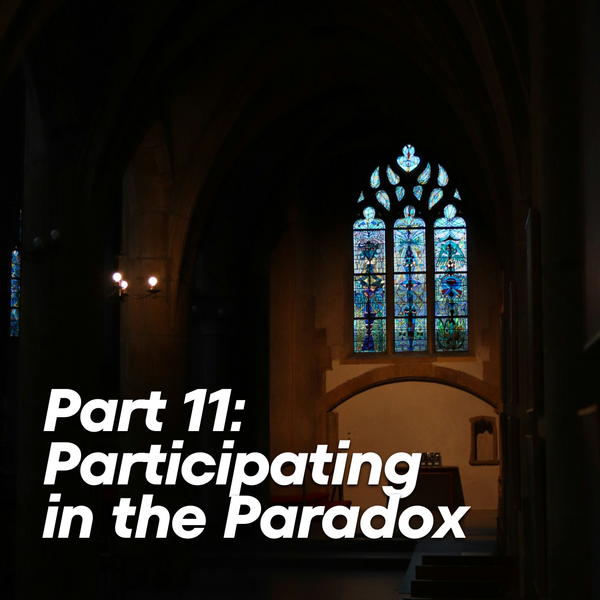Part 9: From the Moral to the Mystical

The Christian of the future will be a mystic, or will not exist at all.
― Karl Rahner
For Christian leadership to be truly fruitful in the future, a movement from the moral to the mystical is required.
– Henri Nouwen
Somewhere beyond right and wrong, there is a garden. I will meet you there.
― Rumi
How could we forget those ancient myths that stand at the beginning of all races—the myths about dragons that at the last moment are transformed into princesses? Perhaps all the dragons in our lives are only princesses waiting for us to act, just once, with beauty and courage. Perhaps everything that frightens us is, in its deepest essence, something helpless that wants our love.
— Maria Rilke
“What do you think Henri would think of my thesis work?” I asked Laurent Nouwen over coffee, sitting across from him on his 10th-floor apartment balcony overlooking the Rotterdam skyline that overcast September day.
He responded, “I think Henri would say, ‘Don’t just write about me, but write about yourself, and maybe I can be of some help to express yourself.’”
Laurent explained, “Use Henri's life and journey as a means of making sense of your own.”
The mere fact that I was hearing these words directly from the mouth of Laurent Nouwen himself already felt like a mysterious kind of fulfillment of Henri’s (postulated) wish. After all, why else would I be sitting across the table from Henri’s own younger brother in Rotterdam, the Netherlands, if Henri’s life hadn’t already somehow led me there?
How else would I have ended up here, in this moment, if I wasn’t searching for my own answers by using Nouwen’s life and example?





